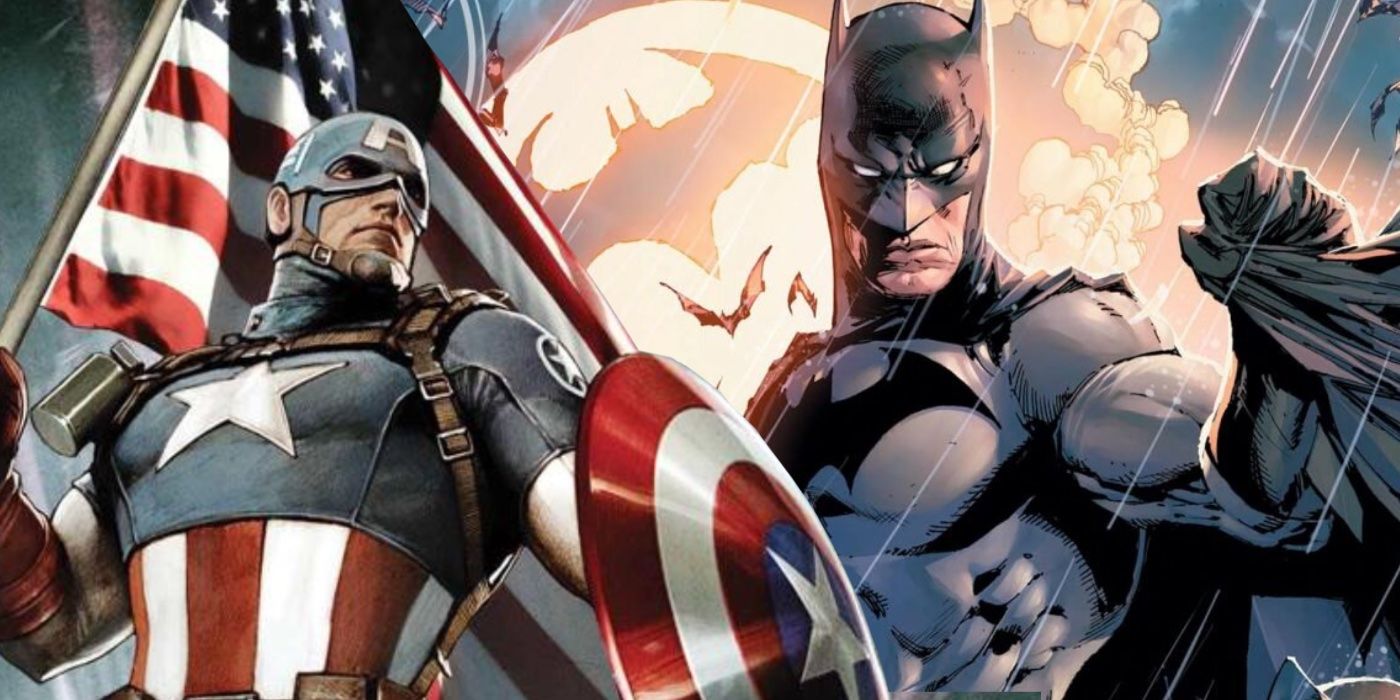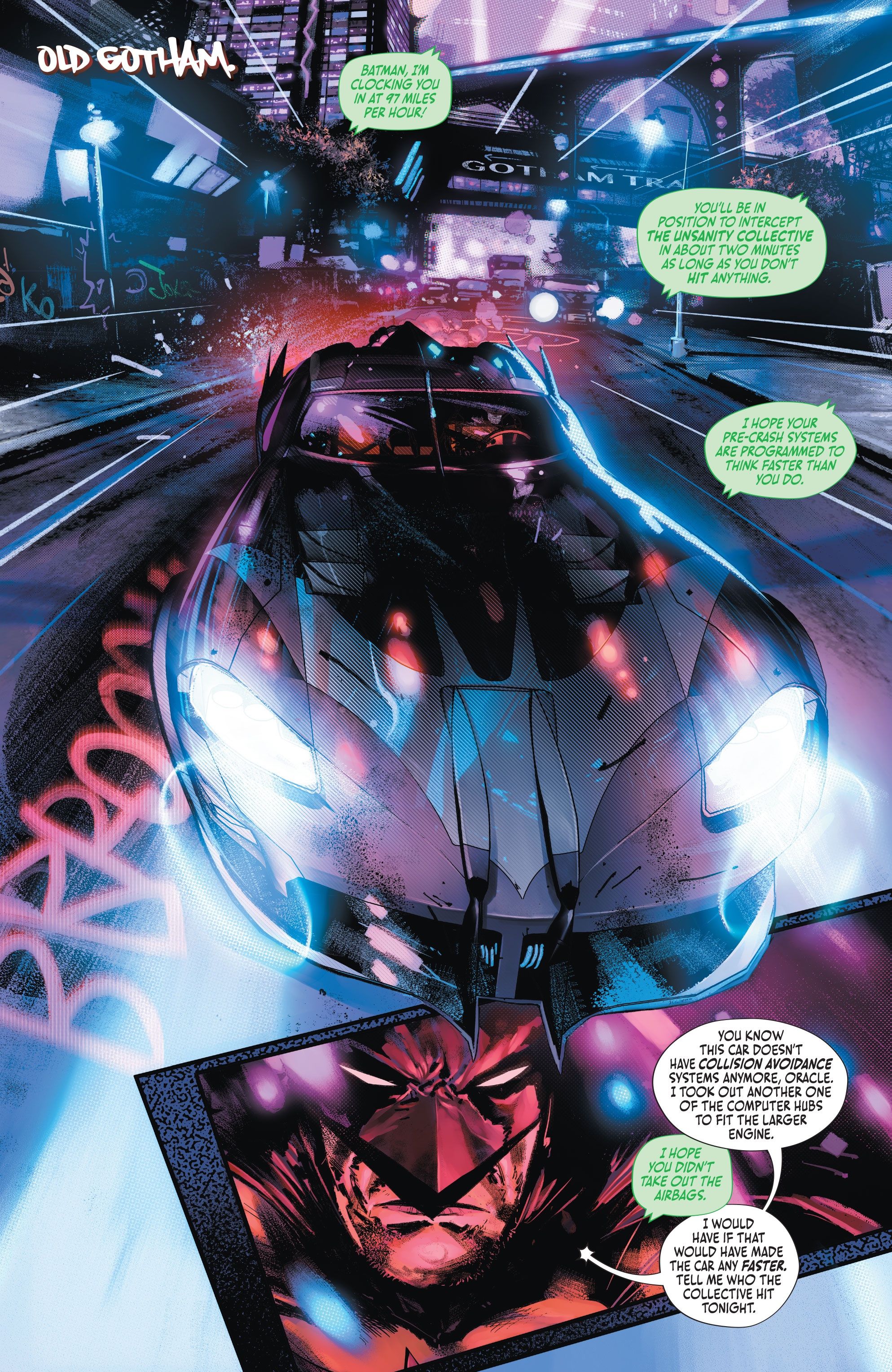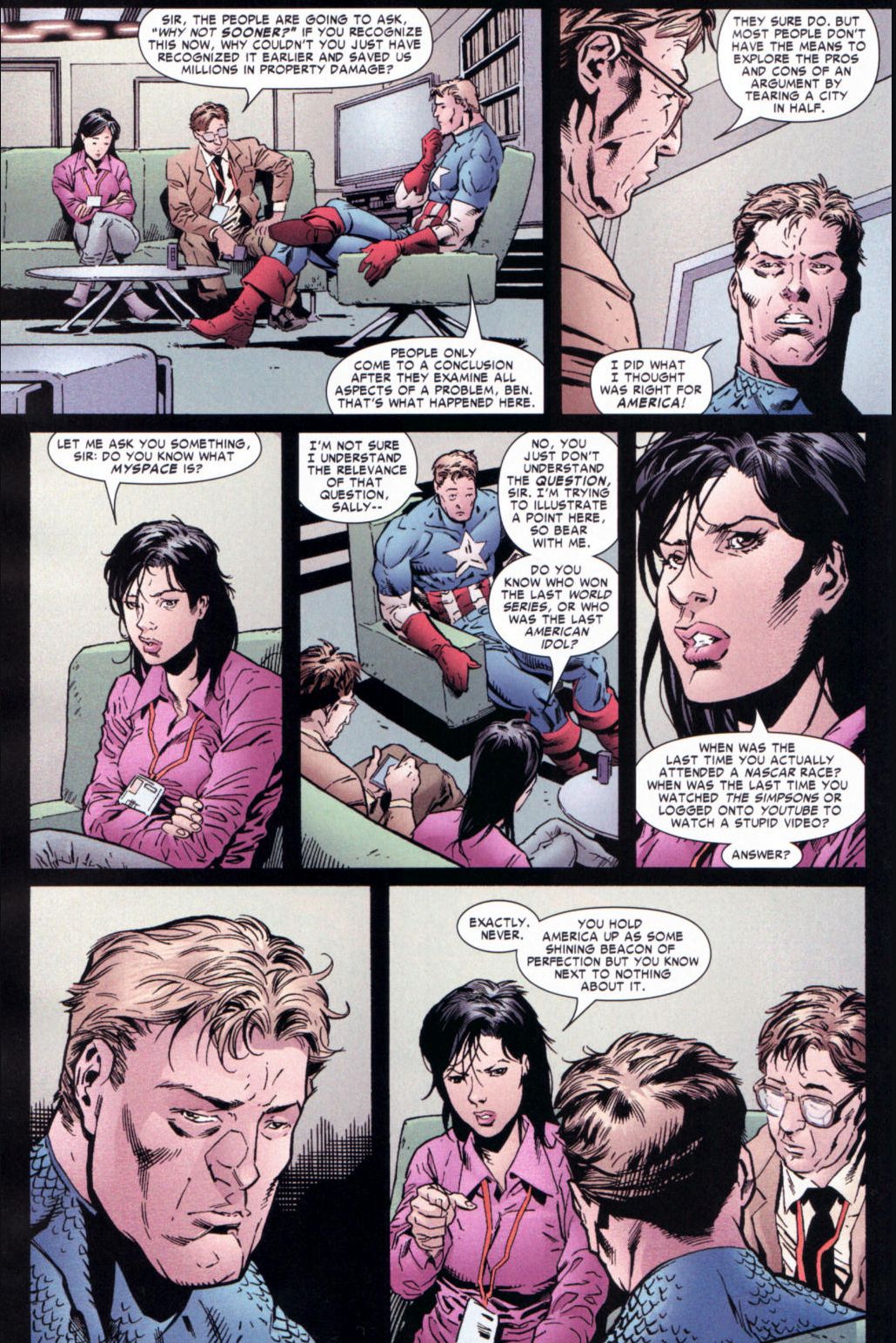Warning! Contains spoilers for Batman #106!
A revealing conversation with Bruce Wayne shows that both Batman and Captain America share little in common with the average citizen. Essentially, Batman's wealth and status removes him from the people he protects, and in recent years this aspect of his character is looked upon with a more critical eye. This barrier that separates Bruce from the 99% is a problem that Batman shares with Steve Rogers.
The aftermath of Joker War and the destruction at Arkham Asylum has left Batman without his fortune, mansion, cave, or even his Batmobile. At the start of Batman #106, written by James Tynion IV with art by Jorge Jimenez and colors by Tomeu Morey, he pursues art-thieving members of the newly-formed Unsanity Collective in a black sports car with a bat symbol placed on the hood. When the pursuit is over, Bruce retreats to his new home—a fairly large brownstone in a residential neighborhood, analogous to New York's Park Slope. Inside, Bruce works at his computer analyzing the recent Unsanity Collective crime spree. With him is new ally Ghost Maker, and Batman reveals key information to him that reveals just how far removed he is from everyone else.
Using a security camera, Bruce sees a resident dismissing a determined reporter on the street who's eager to find an interview the reclusive billionaire. "Before Wayne moved in, all the neighbors knew each other's names! Now we get nosy reporters all hours of the day!" he complains to her. The reporter (and the reader) realize that Bruce hasn't introduced himself to his neighbors—and the reason is clear. Bruce has never had neighbors before; he's entirely unfamiliar with living next to other people. "I think the house next door to Wayne Manor is almost a full mile away," muses Bruce from inside his makeshift Batcave. "And when I've lived in the city before, I owned the entire building."
Not living next to others has set Bruce apart from his fellow Gothamites, in a very literal sense. This situation is similar to that of Captain America's in 2007's Civil War: Frontline #11—with some significant caveats. In the issue, Steve Rogers is accosted by a determined reporter (evidently the bane of superheroes in both the Marvel and DC universes) who infamously asks, "Do you know what MySpace is? Do you know who won the last World Series, or who was the last American Idol? When was the last time you actually attended a NASCAR race? When was the last time you watched The Simpsons or logged onto YouTube to watch a stupid video?" She takes Rogers' silence as a negative and continues: "You hold America up as some shining beacon of perfection but you know next to nothing about it."
At the time of Frontline's publishing, the reporter's line of questioning was ridiculed throughout the Internet, perhaps rightfully so (American Idol knowledge is certainly no metric for measuring patriotism). But the point she was attempting to prove, however haphazardly, still stands: Captain America doesn't live among ordinary citizens. He lives and socializes among his fellow Avengers. But while Steve Rogers began life as an ordinary New Yorker, Bruce Wayne was born into wealth—even before becoming Batman, he lived a life apart.
Can Batman fight for ordinary citizens when he can't possibly empathize with them? Now that he lacks his considerable wealth and resources, Bruce might very well be able to relate to his neighbors. If Captain America still managed to be a heroic figure in spite of his lack of commonalities with the common Joe New York, then Batman can certainly change for the better whilst he lives next door to Joe Gotham.



